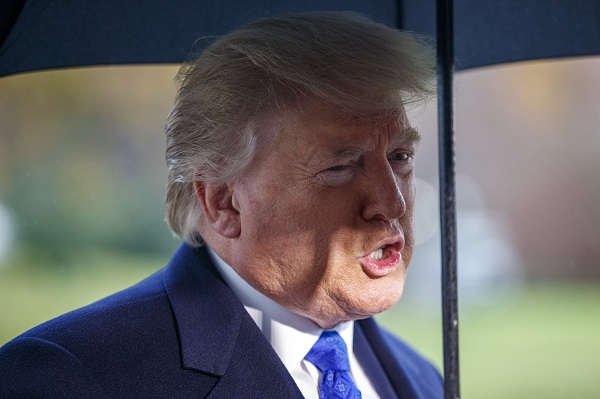New York, US House of Representatives Judicial Committee Chair Jerry Nadler launched Round 2 of the impeachment process against President Donald Trump on Wednesday, accusing him of seeking foreign interference in US elections and being willing to compromise the nation’s security.
Trump had indulged in conduct that amounted to “treason, bribery or other high crimes and misdemeanours” and never before in US history had a President engaged in all three, Nadler said.
The Republican leader on the committee, Douglas Collins, said: “This is not an impeachment. This is just a simple railroad job.”
He said that the impeachment process was not driven by facts and the Democrats had decided to impeach Trumo on the very day they lost the 2016 election.
The Judicial Committee picked up the impeachment process from the Intelligence Committee, which delivered a 300-page report on Tuesday outlining the charges against Trump, based on several weeks of secret hearings and public testimony by serving and former diplomats and officials.
The main charge listed in the report is that Trump “placed his own personal and political interests above the national interests of the United States”.
The Intelligence Committee also accused him of running a “scheme subverted US foreign policy toward Ukraine and undermined our national security in favour of two politically motivated investigations that would help his presidential re-election campaign”.
Trump, who is in London for the NATO summit as the hearings got underway, has refused an offer from the committee to send his lawyers to participate in the proceedings.
He told reporters: “The word ‘impeachment’ is a dirty word that should only be used in special occasions.”
“What they’re doing is a very bad thing for our country,” he added.
Three of the law professors testifying before the Judicial Committee were selected by the Democrats and the fourth by the Republicans.
Their testimonies delved into the minutiae of the constitutional history of impeachment and the definitions and applications of terms like bribery, obstruction of justice, and high crimes and misdemeanours, which are the likely charges the committee will frame against Trump.
The Republicans proposed several motions that consumed time by requiring voting by the 41-member Judicial Committee that includes leftist Democrat Pramila Jayapal before being shot down as the panel raced to finish its work in time for the entire House to vote on the impeachment before its Christmas vacation.
This is the third impeachment of a President in US history – the first was against Andrew Johnson in the 19th century and Bill Clinton in the last. Impeachment was started against Richard Nixon, but he quit before it was concluded.
The core of the impeachment process is Trump seeking an inquiry by Ukrainian President Volodymyr Zelensky into the dealings of former Vice President Joe Biden and his son, Hunter, in Ukraine, and into alleged interference by that country in the 2016 elections.
Joe Biden also sought the removal of the prosecutor looking into the gas company, Burisma.
The Trump administration delayed military aid to Ukraine, which the Democrats say was done to force the country to launch the probes, but Republicans contend was done to ensure that there was no corruption.
Democrats allege the request to investigate the Bidens was seeking foreign interference in US elections because the former Vice President is the front-runner for Democratic Party nomination to run against Trump.
The delay in aid, Democrats say, threatened US national security as it was beneficial to Russia.
Zelensky has denied that he felt he was under pressure from Trump to carry out the inquiries.
Republicans point out that the aid was released without Zelensky ordering the probes.
Hunter Biden who was removed from the Navy for alleged drug use and had no experience in the energy business was appointed to the board of a gas company with a monthly payment of $83,000 while then Vice President Biden was overseeing US relations with Ukraine.
The next stop on the impeachment timeline will be the framing of charges known as the Articles of Impeachment against the president by the Judicial Committee. The articles will be voted on by the entire House and is sure to pass because of the Democratic majority.
The charges will be sent to the Republican-controlled Senate, where a formal trial will be held but it is unlikely that the Republicans will vote to remove Trump from office.
The Democrat-driven impeachment process is, therefore, political theatre with an eye on the elections next year.
The Democrats hope to get the Articles of Impeachment voted by the House before the Christmas vacations.
Impeachment has deeply divided the nation with the support for impeachment stuck at under 49 per cent and opposition to it at under 44 per cent and the latest nationally televised hearings are another attempt to move the needle.









